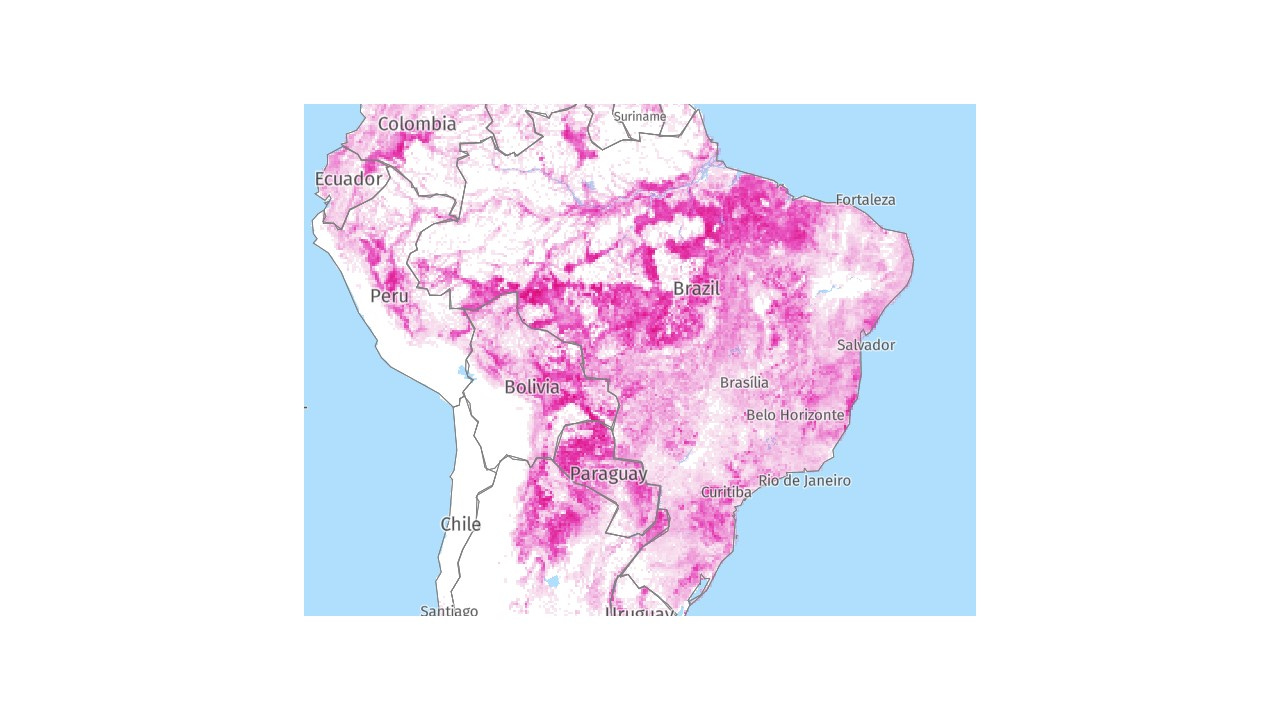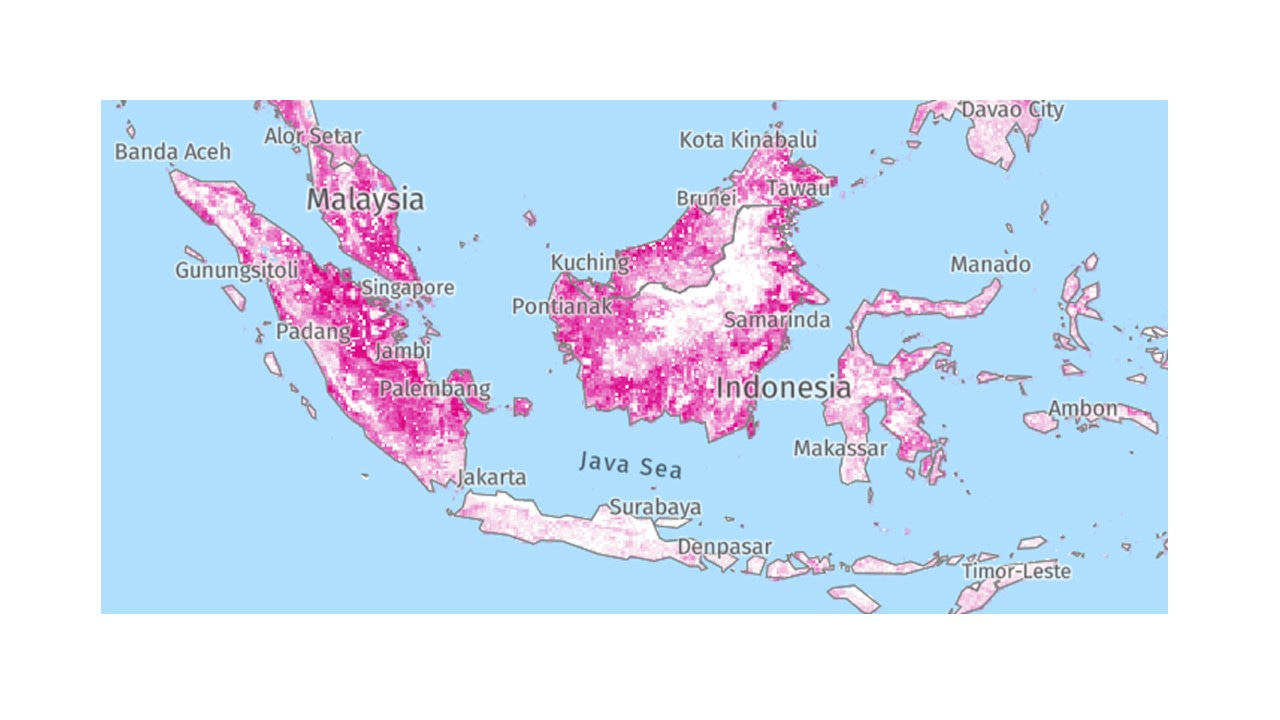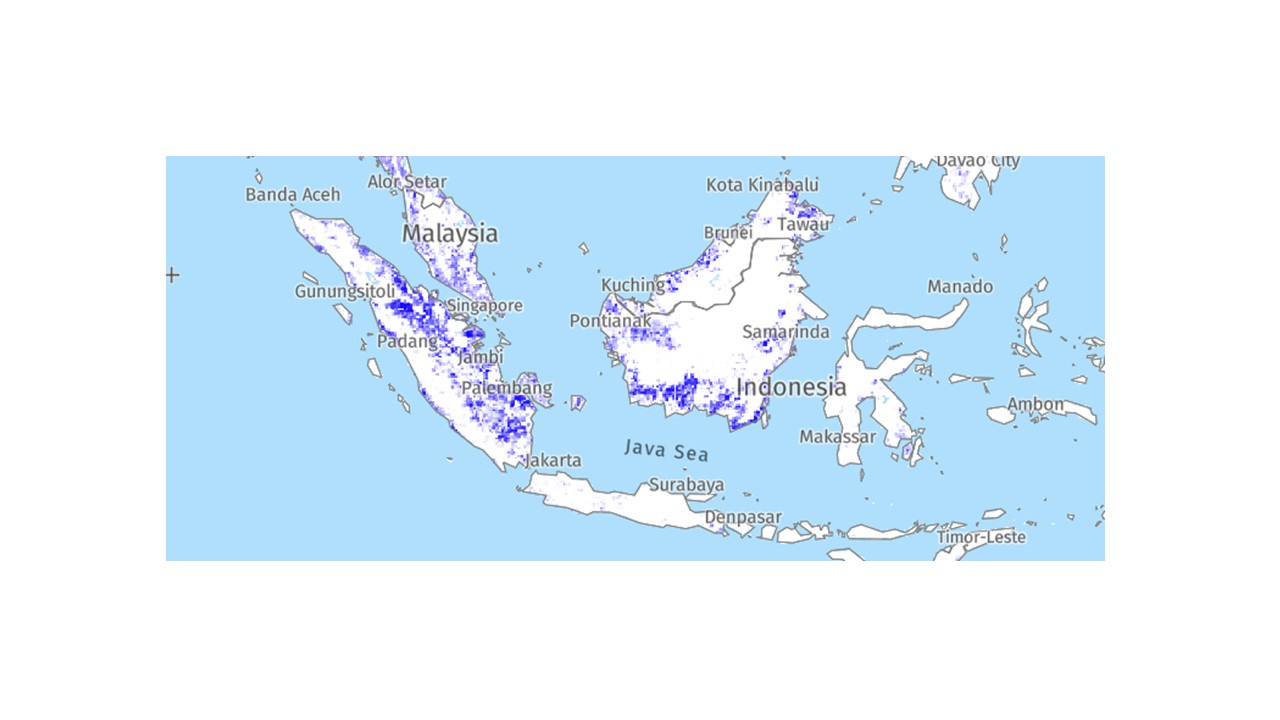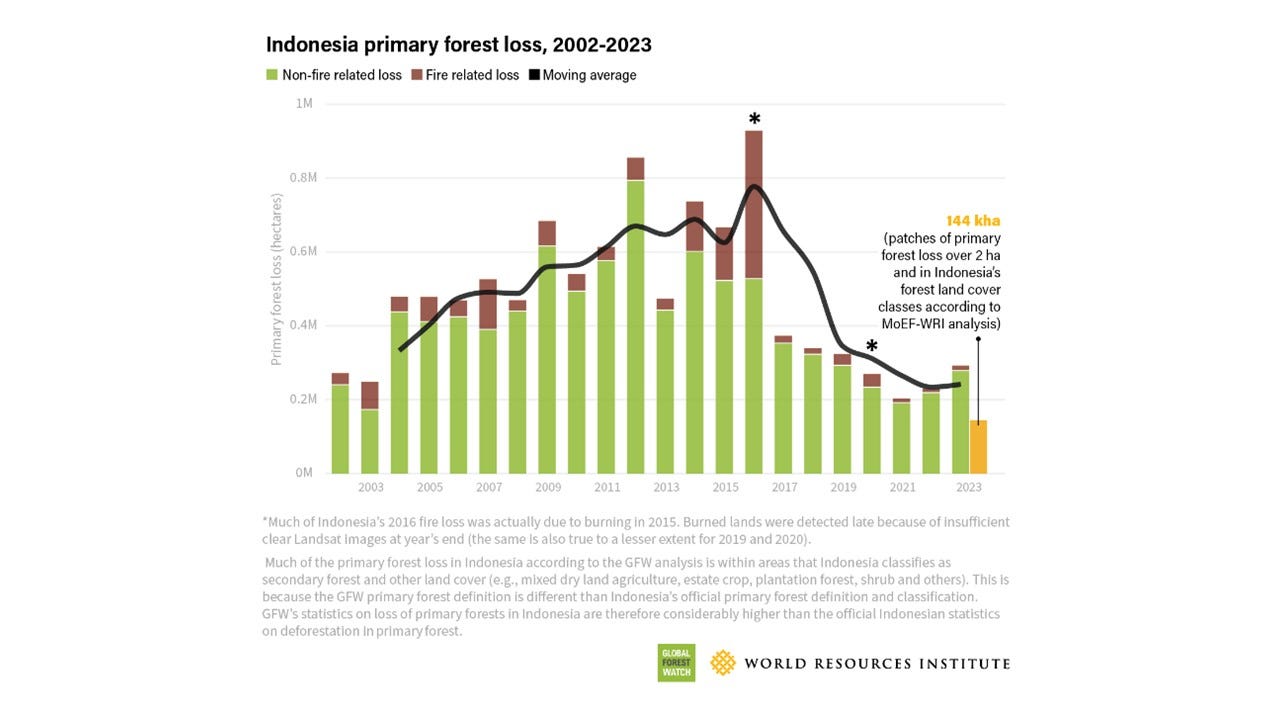Deforestation in the Amazon over the past 20 years. (globalforestwatch.org)
Sometimes events conspire that throw your whole preparation off and you have to roll with it. I was planning to write about how degrowth can save the forest and then this happened:
Brazil Fines Rancher $50 Million for Damage to Amazon.
Boom.
Not much to say after that. Yes, conserve forests, replant forests, and offer ecosystem services for forests, but mostly fine the sh*# out of anyone who messes with the forest. Here are the details:
A federal court in Brazil ordered a rancher to pay more than $50 million for destroying part of the Amazon rainforest. Additionally, the court froze the assets of Dirceu Kruger to pay for the damage he caused to the environment through illegal deforestation.
The civil case against Kruger was brought by Brazil’s attorney general’s office, representing the Brazilian institute of environment and renewable resources (Ibama). Previously, Kruger had been forced to pay damages by Ibama for destroying 5,600 hectares (13,838 acres) in the Amazon that was on public land belonging to the federal government and the state of Amazonas.
Last week’s ruling was the largest civil case brought for climate crimes in Brazil to date, and the start of a legal push to repair and deter damage to the rainforest. (Story courtesy of AgWeb).
Carrots are nice. Sticks send the message.
This case focuses attention on two players in the sustainability conversation who don’t get enough attention – lawmakers and law enforcers.
So much of the discussion around sustainability, climate change, and the other environmental catastrophes that await us is focused on companies and consumers. The thinking goes that if companies offer green products (electric vehicles, beef substitutes, heat pumps) and consumers buy them, everything will turn our fine.
It’s not that simple.
Companies have noticed that some people prefer “sustainable” products, so companies will try to maximize their profits by catering to that niche. They can also virtue signal that they offer these products to protect the Earth.
Let’s be clear. If protecting the Earth was the primary concern of companies and consumers, the Earth would be protected already. That isn’t the case.
Governments have to establish the guardrails so that the Earth is protected. For the most part, we are doing a very poor job of that. But this example from Brazil gives me hope.
Prosecutors in this case contend that the rancher cleared vegetation, set fire to the land, and planted grass to establish pasture for grazing cattle.
Let’s revisit this graphic from my last post:
The courts deciding the case calculated the fine of $50 million based on the hectares damaged and the social cost of carbon calculated by the US Environmental Protection Agency and the Organization for Economic Cooperation and Development. But it doesn’t end there.
Kruger will be required to restore the land, his assets have been frozen and he is banned from selling cattle, and agricultural products.
He is effectively out of business.
Hopefully, this means that we won’t see many more Dirceu Kruger’s in Brazil.
If governments want to protect the forest, protect wildlife, protect the climate, protect any of the nature that we depend on to live, they have to value these things. That means passing laws establishing that these things are valuable to society and then making it really hurt financially when someone destroys that value.
You Can Help
Governments have to do the heavy lifting by putting laws on the books to protect our forests and then enforcing those laws. You can help them by supporting groups like globalforestwatch.org.
Global Forest Watch is an online platform that provides data and tools for monitoring forests. Their technology allows anyone access to near-real-time information about where and how forests are changing around the world.
I encourage you to test drive the website if you are interested. You’ll find things like:
Tree cover loss in Indonesia over the past 20 years.
Tree cover gain in Indonesia over the past 20 years.
Cumulative tree cover losses in Indonesia over the past 20 years.
You can also search by recent and current hotspots (no pun intended) to stay on top of local and global deforestation. According to globalforestwatch.org, from 2000 to 2020, the world experienced a net change of -101 million hectares or 2.4% in tree cover.
If we have the proper tools to track deforestation, as well as laws and law enforcement that includes harsh penalties, we can reverse that trend.







Not gonna argue with you.
stories from the place i come from told the following, from what i remember:
from the 1800 and onwards, the mapuche were dumbfounded by what the wingka (foreigner/invasor) was able to do, without suffering any consequences.
"they cut and they burn. how is it that the wingka can keep ravaging the mapu (land) and not be punished by the ngen (tutelary spirits)?"
until this day there's no real answer. some say that the ngen direct their anger towards the locals, the indigenous mapuche themselves, for not carrying out their duty and responsibility as true custodians.